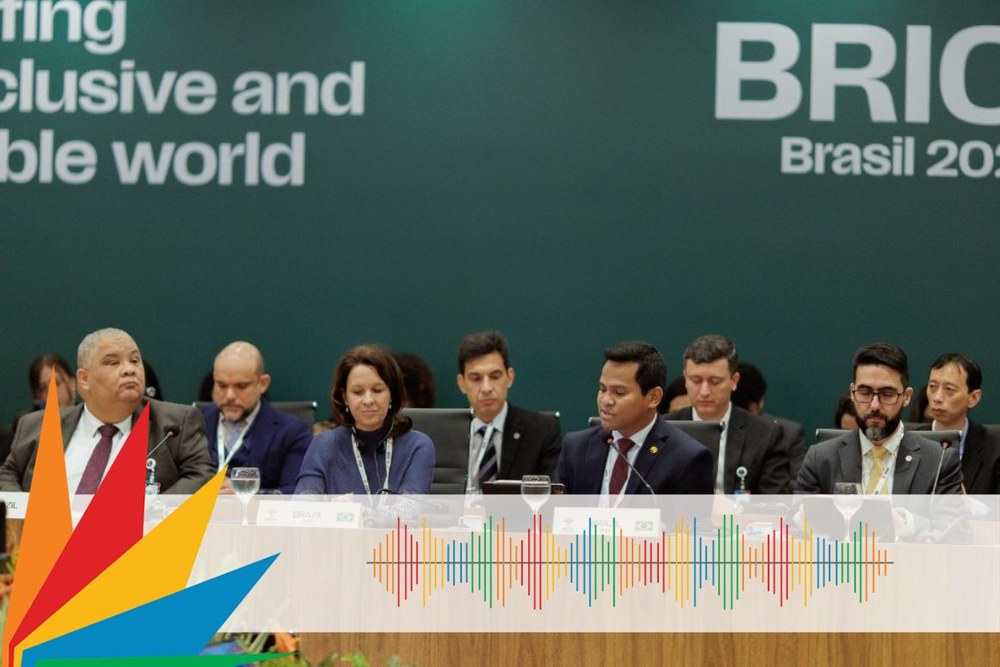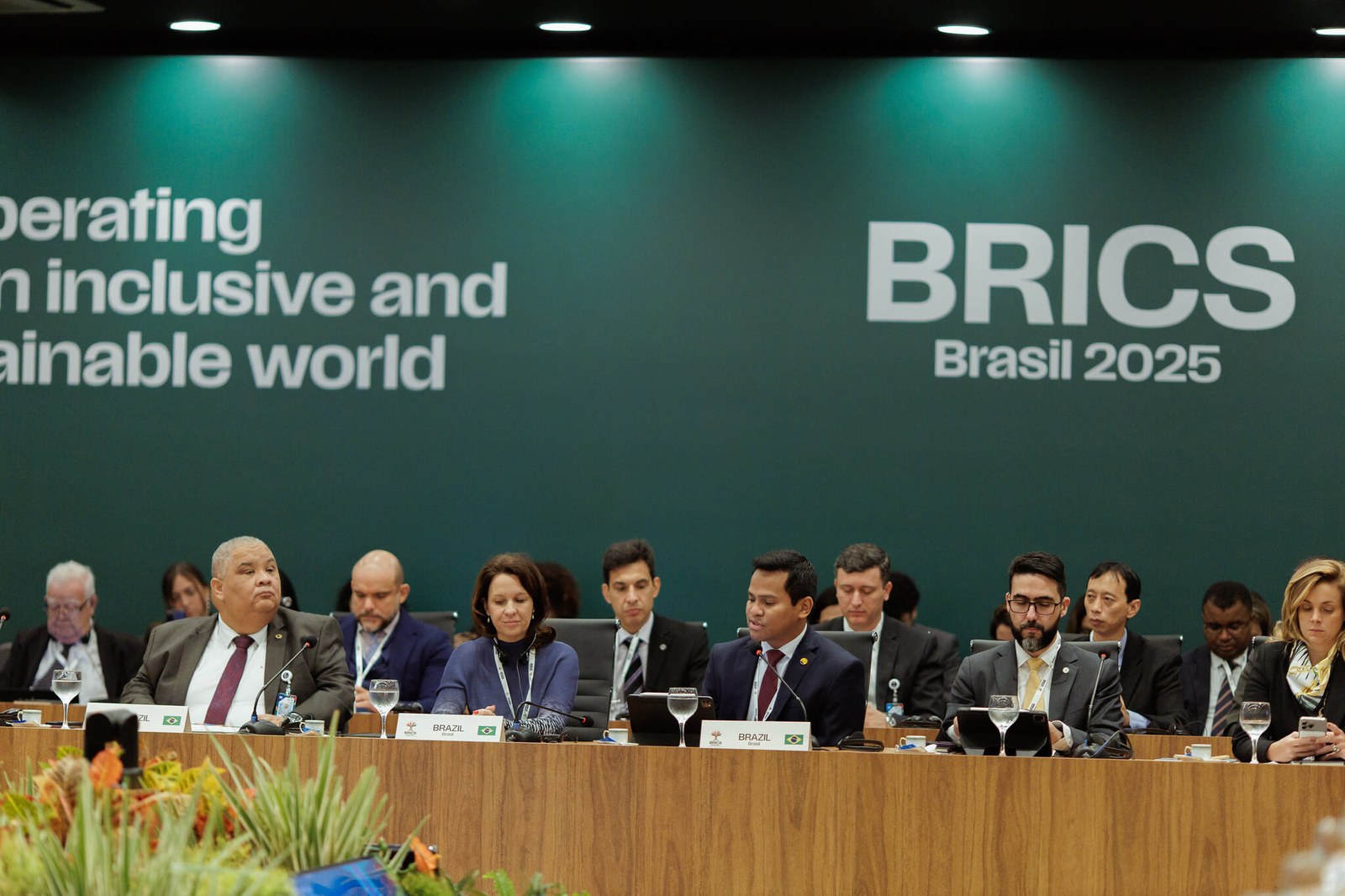BRICS Brasil Bulletin #07 - Brasil hosts 2nd BRICS Ministerial Meeting on Transport with a focus on sustainability and International Alliance
Resilient infrastructure, decarbonization, sustainable aviation fuels, and the creation of a BRICS Institute for Sustainable Transport, Mobility, and Logistics were also on the agenda. Listen to the report and find out more.

Report: Maiva D´Auria | maiva.dauria@brics.br
Voice-over: Inez Mustafa | inez.mustafa@presidencia.gov.br
Reporter: On Wednesday (14th), the 2nd BRICS Ministerial Meeting on Transport convened authorities from member countries to discuss strategic themes on mobility and infrastructure. Authorities approved a Joint Declaration to strengthen cooperation in the transport sector, fostering economic growth, connectivity, sustainability, and development among the countries of the group.
Under Brasil’s presidency of the group in 2025, the Declaration outlined six key areas: sustainable and resilient transport infrastructure; decarbonization of ports and maritime transport; sustainable aviation fuels; air connectivity; sustainable air mobility; and the proposal for creating a BRICS International Logistics Alliance. The Brazilian Ministries of Ports and Airports (Portos e Aeroportos/MPor), Transport (Transportes/MT), and Cities (Cidades/MCid) coordinated the meeting. Cloves Benevides, undersecretary of sustainability at the Ministry of Transport, highlighted the importance of collaborative action:
Cloves Benevides: Our shared ambition is clear: to use transport as a driver of economic growth, connectivity, and sustainable development. The topics discussed during this meeting are essential to ensure that our countries not only become better connected but also grow in a sustainable and integrated way. Sustainable aviation fuel and the BRICS International Logistics Alliance are examples of how we can innovate and lead in a changing world.
Reporter: The countries proposed the creation of the BRICS Institute for Sustainable Transport, Mobility, and Logistics (BISTML), tackling infrastructure challenges through innovative solutions, promoting integration and advancing climate-resilient transport systems by adopting environmental practices and clean technologies.
According to Mariana Pescatori, executive secretary of the Ministry of Ports and Airports, the creation of the Institute is one of the main outcomes of the BRICS Transport Working Group in 2025.
Mariana Pescatori: A strategic initiative to foster innovation, share best practices, and address infrastructure challenges with environmentally sustainable solutions that are resilient to climate change.
Reporter: Another priority pillar highlighted in the Joint Declaration is strengthening the logistics integration among BRICS countries. Thus, the ministers acknowledged the efforts to establish the BRICS International Logistics Alliance. The initiative seeks to bring together the public and private sectors on a joint platform to expand connectivity among countries and strengthen the capacity to respond to climate disasters and other emergencies.
Newly integrated in the group, Indonesia underscored the importance of cooperation in the transport sector as a key driver of economic growth and enhanced global connectivity. During the Ministerial Meeting, Indonesian ambassador to Brasil, Edi Yusup, highlighted the country’s enthusiasm for joining BRICS and stressed its commitment to joint initiatives.
Edi Yusup: Indonesia is very proud to be part of BRICS, especially in the transport sector. Increasing connectivity among members will help build stronger links, boost the economy, and attract new investments.
Reporter: The Joint Declaration also highlights as priorities two additional core pillars: the decarbonization of ports and maritime transport, and the promotion of sustainable aviation fuels. Both efforts underscore the BRICS countries’ commitment to reducing greenhouse gas emissions and transitioning to a low-carbon economy, aligned with the Paris Agreement and 2030 Agenda goals.
